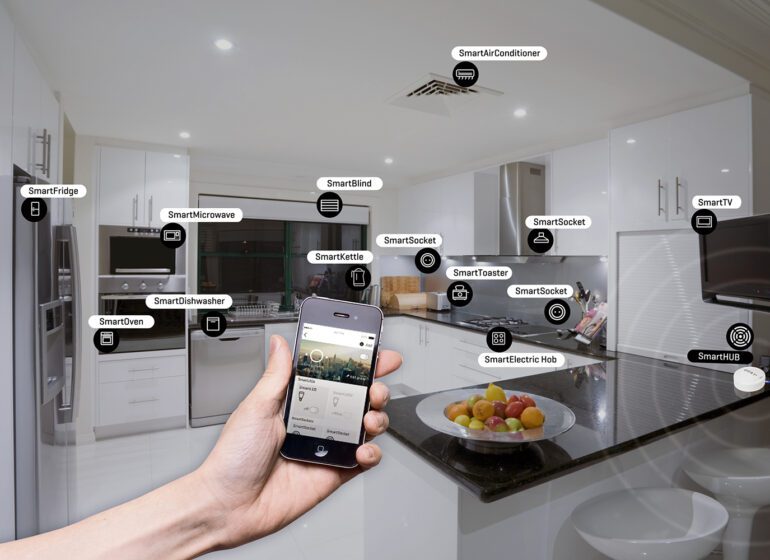TL;DR:
- ChatGPT-like technology is being incorporated into smart home devices, revolutionizing the way users interact with their devices.
- Tuya Smart, an IoT platform company, utilizes AI-generated content (AIGC) to improve smart home devices and facilitate faster development.
- Regulatory uncertainties prompt a responsible approach to exploring new opportunities for ChatGPT-like services.
- Tuya’s new platform, utilizing the Matter protocol, aims to seamlessly connect devices from different brands and standards, enhancing their interoperability.
- The rise of AIGC technology, powered by OpenAI’s ChatGPT, promises improved productivity and human-machine interactions.
- AI enables smart devices to communicate with each other, learn human habits, and provide personalized experiences for homeowners.
- Major tech companies, such as Amazon and Google, are incorporating ChatGPT-like services into their home gadgets.
- AI simplifies the setup and automation of smart home devices, allowing users to communicate their commands in natural language.
Main AI News:
The revolutionary advancements brought about by ChatGPT and its artificial intelligence (AI) capabilities have triggered an escalating frenzy, with the Internet of Things (IoT) sector eagerly embracing AI-generated content (AIGC) to elevate the functionality and development of smart home devices.
At the recent developer conference held in Shenzhen, Chen Liaohan, the esteemed founder and president of Tuya Smart, an IoT platform company based in Hangzhou, expressed his conviction that ChatGPT-like technology will engender “numerous novel avenues for interactions” between users and smart devices. By leveraging this technology, products such as speakers can better cater to the diverse needs of users, heralding a new era of seamless integration and improved performance.
Tuya, the New York-listed enterprise supported by Tencent Holdings, China’s tech giant, has strategically integrated AIGC technology into its latest developer platform. This incorporation serves the purpose of expediting code writing for programmers and accelerating the overall development process of smart devices for their clientele, as elucidated by Chen.
Nevertheless, it is worth noting that Chen underscored the nascent stage of ChatGPT-like services, acknowledging the existence of regulatory uncertainties. Consequently, Tuya remains committed to exploring new opportunities that align with existing policies and regulations, ensuring responsible and compliant utilization of this cutting-edge technology.
The new Tuya platform, adopting the innovative Matter protocol for IoT devices, aims to establish seamless connectivity between devices from different brands and standards, encompassing notable names like Apple HomeKit and Amazon Alexa. This unified approach paves the way for enhanced cooperation among these devices, fostered by the ascent of AIGC, the formidable technology underpinning OpenAI’s renowned chatbot service, ChatGPT. This remarkable technology has captivated the tech industry, promising heightened productivity and refined human-machine interactions.
Within the smart home industry, AI has emerged as a pivotal trend, facilitating inter-device communication and enabling devices to acquire a comprehensive understanding of human habits. This holistic comprehension empowers smart devices to proactively offer personalized suggestions, ensuring a tailored and captivating experience for homeowners.
During a panel discussion at the conference, Li Yiming, a director at Amazon’s cloud unit, espoused the concept that the application of AI in smart devices will seamlessly align with the trajectory of environmental computing. Consequently, home devices will acquire the capacity to discern environmental changes and ultimately make proactive decisions, revolutionizing the very essence of smart homes.
Prominent tech giants, including Amazon and Google, are diligently working towards incorporating ChatGPT-like services into their home devices. For instance, Business Insider reported in May that Amazon is actively developing a comprehensive language model for Alexa, its ubiquitous household smart speaker.
AI holds the potential to simplify the intricate process of automating smart home devices, elucidated David Lin Ta-wei, the head of Google’s smart home technology in the Asia-Pacific region. In the realm of home automation, users often encounter a steep learning curve when configuring and connecting various gadgets. However, with the advent of AI, users can effortlessly communicate their commands in natural language, effectively dictating the tasks to be executed by these intelligent devices, as aptly pointed out by Lin.
Conclusion:
The integration of ChatGPT-like technology in smart home devices marks a significant advancement in the IoT industry. The ability to leverage AI-generated content enhances communication between users and devices, enabling seamless integration and improved functionality. Tuya Smart’s incorporation of AIGC technology streamlines the development process, while adherence to regulatory guidelines ensures responsible utilization. This trend signifies a market shift towards enhanced connectivity and personalized experiences in the smart home sector, with major players investing in AI to improve user interactions and simplify device automation.

